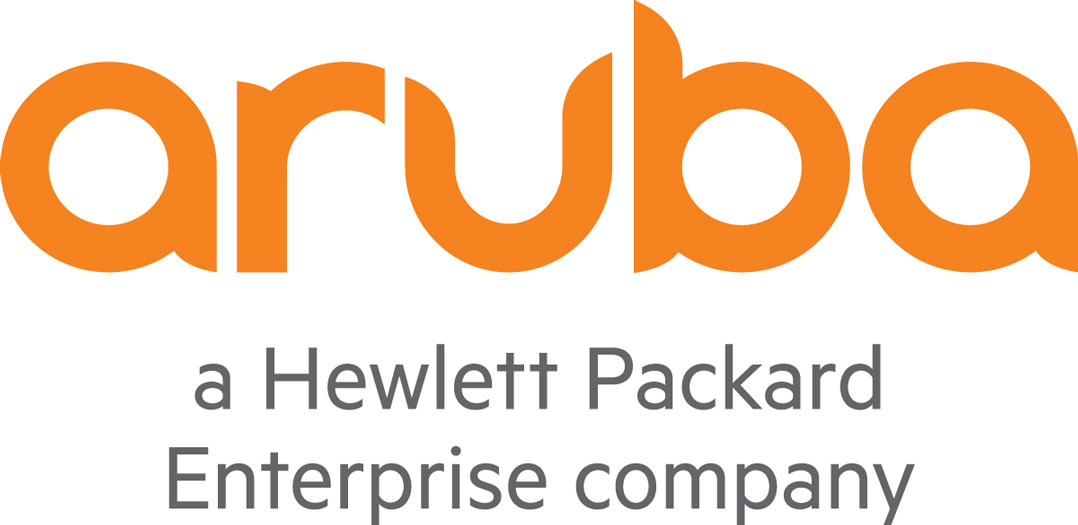 Today, educational institutions around the world make use of a wide variety of IT technologies that are complementary to the learning process. Chief among these technologies is the network that links students to their teachers, lessons and online resources.
Today, educational institutions around the world make use of a wide variety of IT technologies that are complementary to the learning process. Chief among these technologies is the network that links students to their teachers, lessons and online resources.
In South Africa, 2019 was a hugely successful year for Aruba and silver partner KHIPU Networks. Working together with several South African universities and colleges, Aruba and KHIPU Networks helped transform the learning and teaching experiences for thousands of students and staff around the country by designing and deploying world-class networking solutions.
For more information, visit khipu.connected-campus.co.za
These solutions helped to address some of the biggest technical headaches of the education sector, namely the speed, stability and accessibility of the networks that underpin the digital learning experience.
The deployed solutions performed two vital functions. Through intelligent network provisioning, the digital life on campus was revolutionised by providing easy student and staff access to online resources and the latest digital learning tools. At the same time, it gave IT departments more control over their networks to proactively support and enhance the end-user experience.
That was 2019, however, which today seems like a long time ago given the arrival of the Covid-19 pandemic and the major societal changes it has brought. The subsequent lockdowns, limitations on economic activity, the shift to working from home, and the forced closure of schools and universities have created a “new normal” that individuals, communities and countries are still trying to wrap their heads around.
It is predicted that a more “hybrid” approach to education will emerge within this new normal, which embraces both digital and traditional learning methodologies.
Critical requirements
KHIPU Networks and Aruba are leveraging many of the strong relationships they’ve built to understand the new challenges, shared experiences, perspectives and outlooks facing the education sector, in order to build world-class networking solutions that will support this new paradigm for faculty, staff and students alike.
Some of the most critical technical requirements already emerging include:
- Secure, remote access for faculty, staff and students;
- Connectivity to expand access and create new campus zones, including the student dorms and recreational areas where possible;
- Secure remote monitoring;
- Visibility and management of remote sites;
- Remote support; and
- Assistance in minimising capex spend with HPE Financial Services.
Val Theron, GM at the Association of South African University Directors of Information Technology (ASAUDIT), says it is “vital that educational institutions continue to enhance teaching and learning experiences, especially during these challenging times”.
“Universities in particular must be able to offer 24/7 accessibility to staff and students over any device in order to keep up with the demands of today’s students.”

The real connectivity challenge
Even without the complications of the Covid-19 pandemic, the challenge of delivering reliable and secure IT services within higher education and further education is huge.
Multiple studies by Wits University in 2020 indicated that only between 10% and 15% of their students don’t have access to smartphones, meaning the remaining 85%-plus do, and regularly use them to access online resources to support their learning.
It’s fair to say, then, that student learning is fast becoming a digital experience: Many students take notes on their phones, access recorded lectures and leverage apps to manage time, do revision and summarise their study notes.
For the students themselves, being able to use multiple devices anywhere and everywhere to do these things is no longer a luxury, it’s an absolute necessity to provide them with an enjoyable and productive learning experience.
Consequently, the growing need for secure, reliable connectivity to support these activities has placed enormous strain on IT resources.
Nicole Kotton, senior customer account manager at KHIPU Networks, says: “This experience and level of content and engagement is only as good as the connectivity provided. It is therefore imperative that the learning process is not hindered by poor performance of, or a lack of access to, the network.
Smartphones
“In South Africa, there are very few students in South African cities without smartphones and devices. However, those who do have them often can’t use them to their full potential, owing to the high cost of cellular data. Internal university networks that link students to the online resources they need solve this problem entirely.
“As a result, many higher education and further education institutions are choosing to transform their networks, opting for modern, intelligent solutions that can cope with these new demands.
“This is why, with the big shift to digital transformation for enhanced learning and teaching, and user expectations for 24/7/365 network availability, IT must be fit for purpose,” Kotton adds.
 It’s clear from the above that reliable, high-performance cross-campus wireless connections are mission-critical for educational institutions today. In addition to other network capabilities, this is what Aruba provides: high-performance wireless connectivity that not only extends the reach of the campus network, but which reliably supports all of the learning activities students engage in on their mobile devices.
It’s clear from the above that reliable, high-performance cross-campus wireless connections are mission-critical for educational institutions today. In addition to other network capabilities, this is what Aruba provides: high-performance wireless connectivity that not only extends the reach of the campus network, but which reliably supports all of the learning activities students engage in on their mobile devices.
The challenge here is not only technical, but financial, too. To alleviate financial pressures, HPE Financial Services offers several financing solutions to help educational institutions shoulder the load. Options include releasing capital from existing infrastructure, payment deferrals and providing pre-owned tech at great prices.
“This sudden and dramatic shift to a hybrid learning model will not be easy,” says Kotton. “However, it can provide educational institutions the opportunity to experiment and innovate. Piloting new approaches, building on best practices and adopting reliable networking technologies can help to create positive and enduring changes.”
 To offer a world-class educational experience, education providers know that they need to offer world-class connectivity. Aruba and KHIPU Networks have met this challenge by working closely with the sector to understand their evolving challenges, focusing on three key areas:
To offer a world-class educational experience, education providers know that they need to offer world-class connectivity. Aruba and KHIPU Networks have met this challenge by working closely with the sector to understand their evolving challenges, focusing on three key areas:
1. Always connected – That’s a vow
With higher education and further education’s growing dependence on mobile devices, the growth in the number of devices accessing their networks, and a desire to enable learning virtually anywhere, network refreshes have typically required a strong focus on campus-wide wireless access. This has resulted in ultra-reliable, high-speed and secure wireless connectivity for all types of users.
Network refreshes can be a huge step up for the institutions – from providing just an average IT service to delivering a world-class, “always-on” digital experience that transforms the way students work and learn.
2. Staying safe online – The overriding need for network security
Our projects have harnessed Aruba’s market-leading expertise in network design and KHIPU’s world-class reputation for cybersecurity. This has helped create secure, future-proofed networks that give students and staff the confidence that their information is safe. It also gives institutions peace of mind that they are well defended against cyberthreats.
“Being an independent preparatory school in Port Elizabeth, our desire when seeking secure network access was that, while it remains cost effective, we did not want to compromise the integrity and security of our network,” says Alex Hall, campus head at St George’s Prep.
“We wanted to provide a robust solution for staff and students alike. It was very important to our vision that we continue to maintain oversight and control over what our staff and students are connecting to.”
3. A shift in IT mentality – From break/fix to technology enabler
Our projects are changing how education institutions see IT. They no longer view network infrastructure as just the backbone of IT, but as an opportunity to proactively add value to the student experience.
For example, the use of Aruba’s ALE (analytics and location engine) allow students to check study space availability in real time – saving wasted journeys and promoting good use of campus resources.
It’s a clear demonstration of how intelligent network design not only transforms the digital experience for students (through better reliability and speed), but also how it enhances the wider learning experience by bridging the physical and digital worlds.
In summary
In 2019, Aruba and KHIPU played a key role in helping leading South African further education and higher education institutions provide world-class connectivity to their students, staff and visitors, transforming the overall learning and teaching experiences they offered.
By continuing to listen to our customers, and building on the strong relationships they have in the sector, 2020 will see us continue to help guide South Africa’s educational institutions to a new and better norm for faculty staff and students alike.
For more information, visit khipu.connected-campus.co.za.
- This promoted content was paid for by the party concerned

